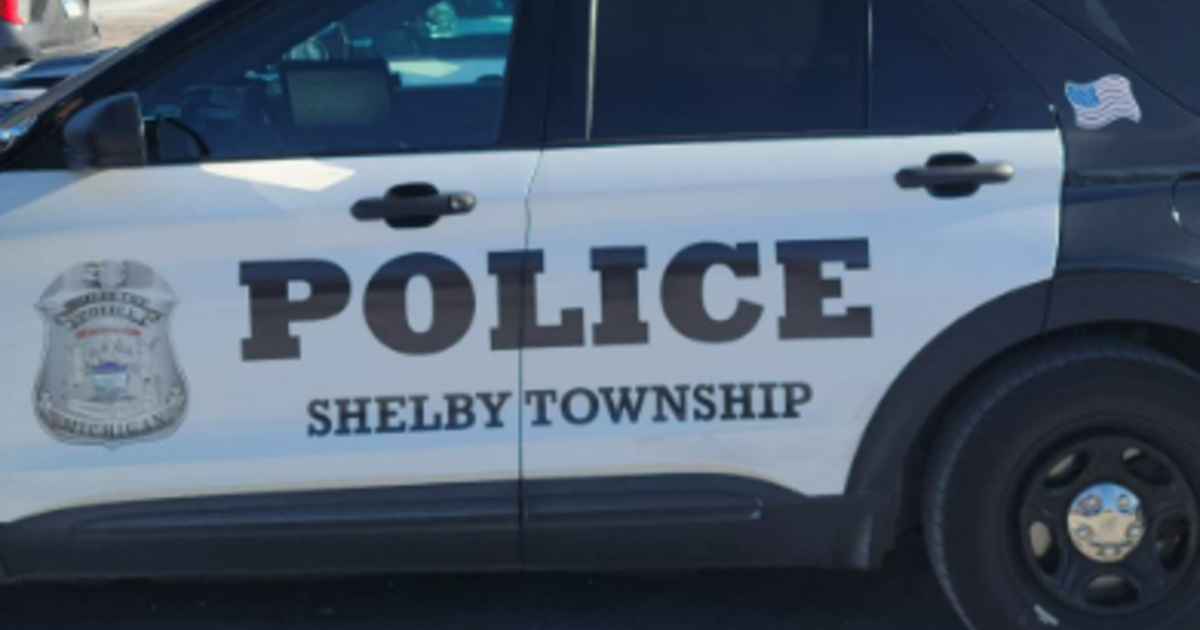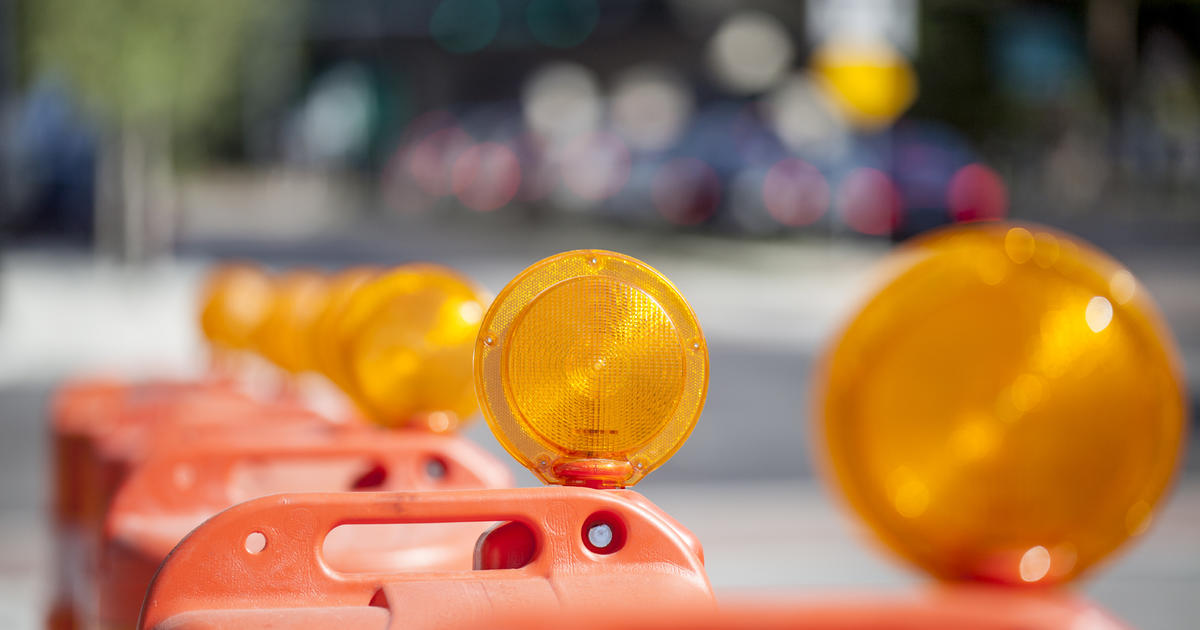Detroit Bus Drivers Expose Deplorable Working Conditions: Rodents, Bed Bugs, Spitting And Assaults
DETROIT (WWJ) - Detroit bus drivers say they're fed up working in deplorable conditions -- with primitive seating, daily assaults from passengers and bug-infested coaches -- and they're demanding the city take action.
The drivers say their working conditions are disgusting -- they have no choice but to breathe diesel fumes, passengers verbally abuse and spit on them, and they're forced to dodge roaches, bed bugs and rodents. Those are just some of the complaints from the Amalgamated Transit Union Local 26, which represents Detroit Department of Transportation bus drivers.
In a resolution passed Wednesday, the union is demanding the city provide improvements and immediately fix bus operator workstations to end "the preventable accidents, and driver injuries that plague DDOT."
Union President Fred Westbrook said bus drivers in Detroit are some of the most vulnerable city employees. Assaults, verbal abuse, spitting on operators -- even bed bug incidents -- are all on the rise, he says.
"An alarming number happen just because someone wants to do violence to a bus driver. Ever since that law was passed where they closed up the mental institutions, it's a lot of people that are unstable in Detroit that ride the buses and we have to deal with them on a daily basis," Westbrook told WWJ's Charlie Langton. "Once passengers spit on you or punch you in the face and they jump off the bus, there's no retaliation. We need these people prosecuted. ... For people who assault bus drivers in the commission of their duties, we want the same penalty that a police officer has if you assault him."
[Police: DDOT Bus Driver Assaulted By Passenger]
On the other side, DDOT's Director Dan Dirks thinks small incidents are being exaggerated and blown out of proportion. "We have had two -- TWO -- bed bugs on our buses. We have a program that is, we get calls from transit systems throughout the country in terms of how good our performance is in that area. In terms of safety, we rank right up there with other transit systems in the midwest and throughout the country."
Dirks added DDOT runs about 60,000 trips a month, and there was one incident reported to the feds last month. "We keep progressing ... The incidents have gone down 70,80 percent," he said.
While Dirks said camera on the buses have helped dramatically decrease incidents, DDOT is actually putting its drivers in danger, Westbrook said, by not informing them of attacks on co-workers.
"It's not difficult to find (the suspect) because they're going to ride the bus again. They don't just assault us and never ride the bus again," he said. "We have asked for our DDOT, once there's been an assault on the bus driver for them to announce it over their PA system for every bus driver to hear it and hear the description. So if this assailant gets on one of the buses, they can be apprehended. None of that."
If assaults weren't enough, drivers also must deal with other vermin like rodents and bed bugs, Westbrook said.
"We had a massive epidemic last year of bed bugs on the DDOT buses and, you know, the bed bugs come from -- we ride the homeless and anyone can ride the DDOT bus. We have a bulletin out there that if you see a bed bug on the coach, you are to call control so they can come and get that bus out of service. They even hired a bed bug-sniffing dog who can find bed bugs. And then these buses have to be out of service for four or five days," said Westbrook. "We have had some cases this year of bed bugs where operators had to strip down because they didn't want to take bed bugs home."
[Bedbugs On Detroit Buses? Councilwoman Reports Problem]
And that's when things start to get really serious for the drivers, he said, when they start to see the negative effect that going to work has on their health. At times, they can't even breathe fresh air, he said. The ventilation system on some buses is so bad, Westbrook says DDOT drivers are constantly risking exposure to dangerous fumes and infectious agents.
"Bus operators have asthma 4.6 times the normal rate and have nearly twice the normal rate of COPD, a progressive and terminal disorder of the lungs," he said. "The diesel fumes while you're driving on some of our old coaches, it seeps up through the front of the bus. The fumes of the exhaust get so bad that some of them have to find other jobs."
Dirks said that's not accurate, saying the buses are regularly tested to make sure they meet safety standards. "That's just absurd," he said. "We won't jeopardize our driver, we won't jeopardize our customer."
Alternatively, the union says DDOT buses are decades behind the safety standards, which not only endanger drivers and passengers, but other motorists and pedestrians as well. Dirks says the city pays private riders to ride the buses as their "eye and ears" and works with the Amalgamated Transit Union on driver safety issues at the national level.
"We have blind spots that create accidents. These blind spots are the panels at each end of the windshield and the left-side view mirror. There could be a pedestrian crossing the street that gets in the blind spot, and we would never see them," said Westbrook.
Westbrook said DDOT Director Dan Dirks told him back in the spring they were working on improvements, but he's seen little progress. Dirks says they're talking to manufacturers about the mirrors and things like collision avoidance systems, adding he has "tremendous respect for drivers ... We're not perfect, we're trying to get better every day."
"He told me that they are trying to get a grant to try to get some of this technology," said Westbrook. "Dan Dirks said that some of the stuff would be done by July but here it is September and nothing has happened."
The union, which represents 550 DDOT workers, is calling for buses that have:
• Protective barriers that can be quickly raised or lowered by an operator, that do not obscure the operator's view, and that do not block air conditioning or heat from the driver's workstation.
• Unobstructed views for bus operators that include open view windshields, minimal A-pillars connecting the windshield to the driver's side window, and mirrors that don't obscure an operator's vision.
• Workstations that include "active" ergonomic seating, intelligent steering, adjustable pedals, and a dashboard and steering wheel that both telescope and tilt.
• Proper filtering of bus compartment air quality, rational location of air intake and exhaust from buses, effective sealing and proper maintenance of engines, heaters and air conditioning systems.
• Workstations that are free of roaches, bed bugs, rodents and other insects.
DDOT bus drivers earn between $12.69 and $18.29 an hour.



